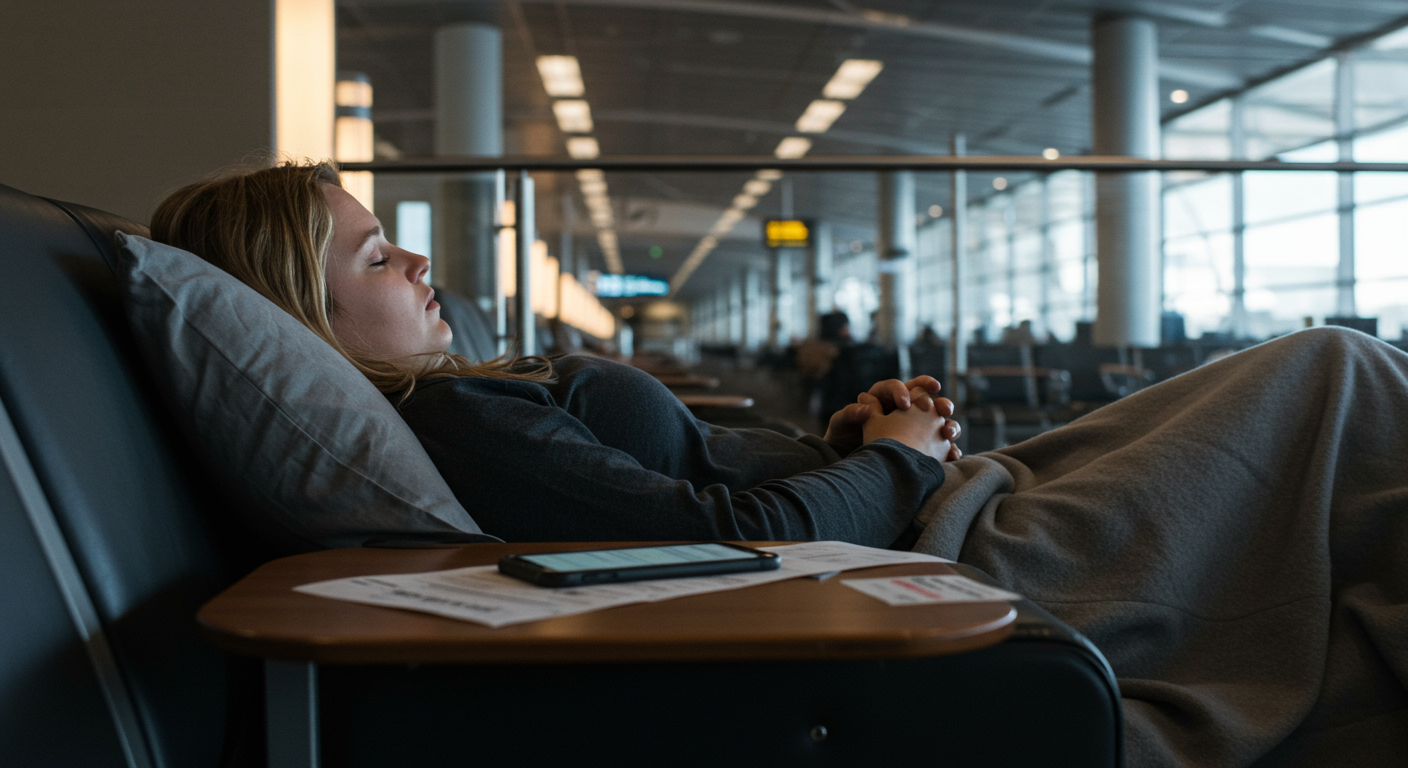Lost luggage is a nightmare, especially when you're far from home. As a frequent international traveler, you know that every minute counts. This guide provides you with a step-by-step action plan, ensuring you know exactly what to do when your luggage goes missing, along with strategies to prevent it from happening again. This is your ultimate guide for 2025.

The Problem: What's Really Happening
Lost luggage isn't just an inconvenience; it disrupts your travel plans, potentially costing you time and money. The problem is widespread, with thousands of bags mishandled daily by airlines worldwide. Delays in finding your luggage can range from hours to days, turning a simple arrival into a stressful ordeal. Understanding the root causes – mishandling, transfer issues, and labeling errors – is the first step toward taking control.
Why This Affects International Travelers
International travel amplifies the problem. You're dealing with multiple airlines, longer transit times, and potential language barriers. Moreover, international flights often have stricter regulations and varying compensation policies. Knowing your rights and the specific procedures for the regions you're traveling to is crucial for a swift resolution and fair compensation.
Root Causes Analysis
Lost luggage often stems from a combination of factors. Baggage handling systems at large airports are complex, increasing the risk of errors. Transfers between airlines, especially with codeshare flights, are common trouble spots. Finally, incorrect labeling or damage to luggage tags can lead to bags ending up in the wrong place. Proactive measures are necessary to minimize these risks.
Step-by-Step Solution Framework
Immediate Action (at the Airport):
- Go to the airline's baggage claim office or customer service desk immediately after realizing your luggage is missing. Get a Property Irregularity Report (PIR) – this is your official record.
- Describe the bag in detail, including size, color, brand, and any unique features. Include any contents you can recall.
- Gather copies of your flight ticket, baggage tags, and passport.
Tracking and Communication:
- Track online using your PIR reference number to check the status of your luggage.
- Follow up regularly with the airline, keeping a log of all communications including dates, times, and names of people contacted.
Understanding Your Rights:
- Compensation is available under international agreements like the Montreal Convention, which sets limits on compensation but provides a framework for claims. You're entitled to compensation for essential items, and sometimes, the cost of the lost luggage. Keep receipts for necessary purchases.
- Familiarize yourself with your airline's specific policies as they must adhere to these international agreements.
Filing a Claim:
- Gather all necessary documentation such as the PIR, receipts, and proof of the lost items.
- File a formal claim within the specified timeframe (usually 7-21 days). Keep a copy of your claim.
Prevention Strategies
Smart Packing:
- Always pack essential items like medications, toiletries, and a change of clothes in your carry-on bag.
- Keep valuables, important documents, and electronics with you.
Baggage Tracking:
- Consider using luggage trackers that use GPS or Bluetooth to help locate your bag.
- Take photos of your luggage before checking it to prove its condition if needed.
Travel Insurance:
- Ensure your travel insurance policy covers lost, stolen, or delayed luggage.
- Understand the claims process and required documentation.
Reduce Risk:
- Choose direct flights whenever possible to reduce mishandling risks.
- Research airlines with good baggage handling records for a smoother experience.
When to Seek Professional Help
If the airline is uncooperative, delays compensation, or denies your claim, consider seeking professional assistance. Services like AirHelp can help you navigate the claims process, negotiate with the airline, and potentially recover more compensation.
International Legal Protections
- Montreal Convention: The Montreal Convention sets the standards for airline liability for lost, delayed, or damaged baggage on international flights. It sets limits on compensation but also provides a framework for pursuing claims.
- Airline Regulations: Each airline has its own baggage policies, which must adhere to these international agreements. Familiarize yourself with the specific airline's rules.
Your Action Checklist
- Report immediately by filing a PIR at the airport.
- Track your luggage using the airline's online tracking system.
- Keep all documentation including flight tickets, baggage tags, receipts, etc.
- Communicate regularly with the airline to keep track of updates.
- File a formal claim within the airline's timeframe.
- Seek professional help if needed, especially for uncooperative airlines or denied claims.